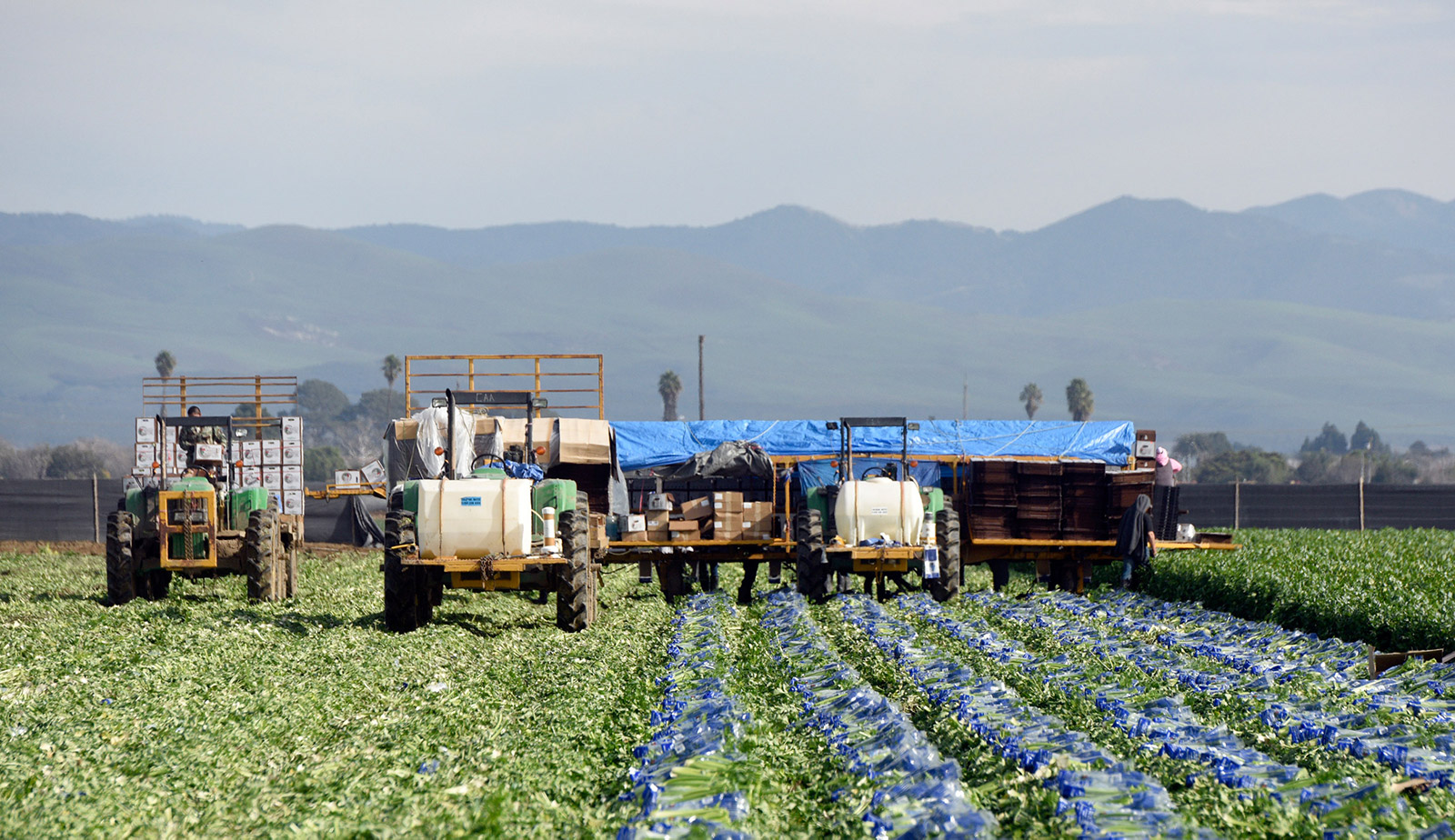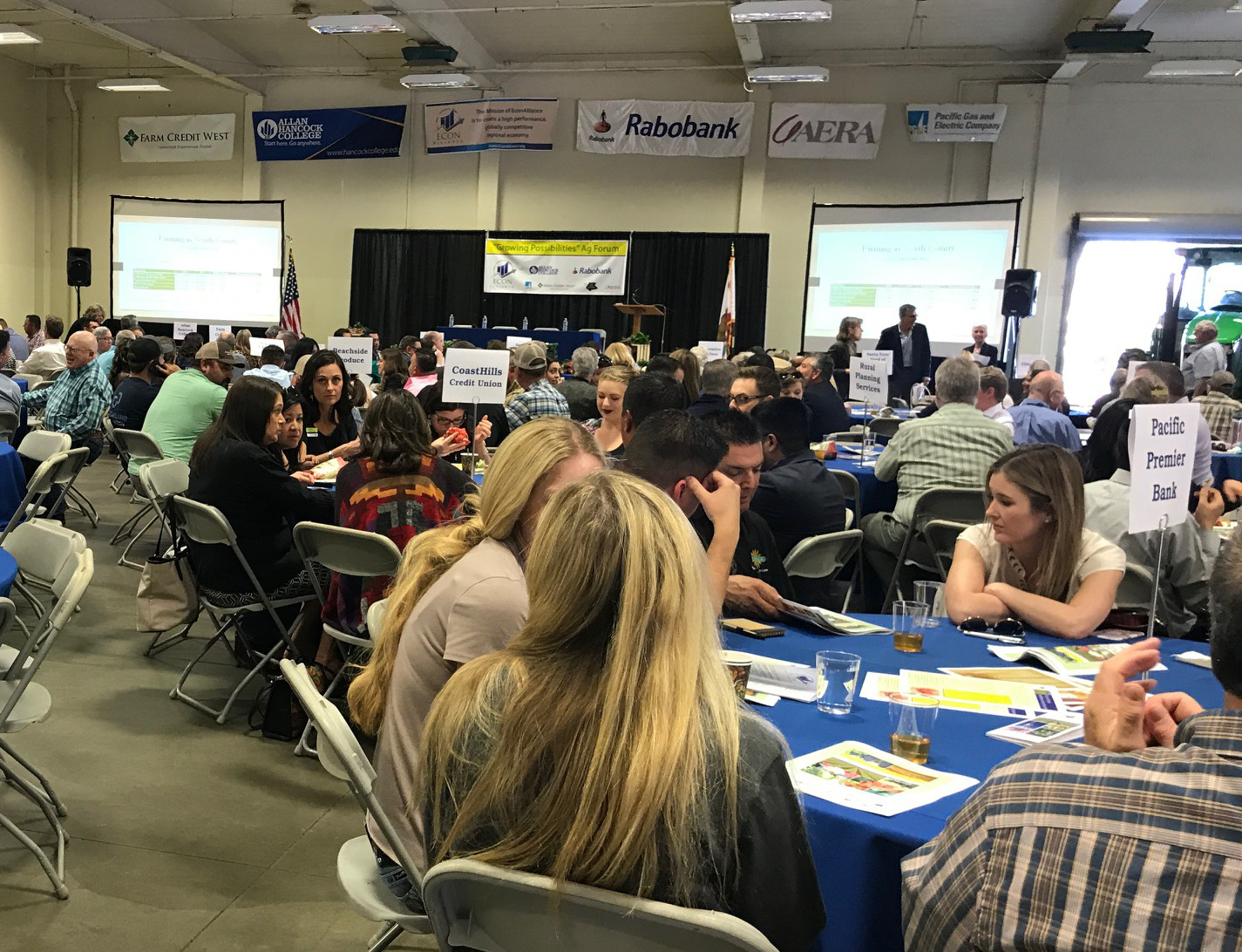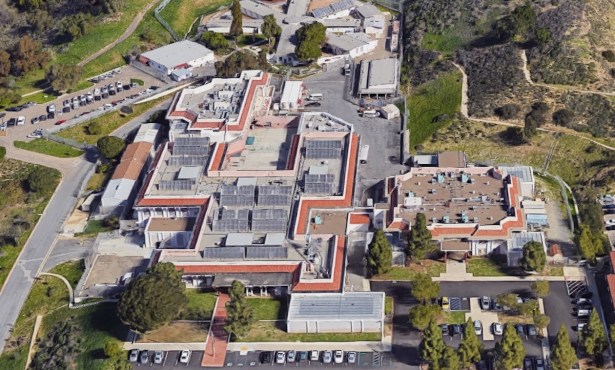Farmers See Too Much Government in Agriculture
Wages, Worker Exploitation, and a 'War' Against Mexico Come Up at Santa Maria Forum

Produce grower George Adam opened a forum for corporate farmers in Santa Maria on Friday by showing a slide that compared farmworker wages there to those in Mexico. Here, he said, farmers are struggling to pay high minimum wages while competing with Mexican farmers who pay laborers $5 an hour. “That has become a reality,” he said. “If we can still make our bottom line work, that’s a whole other reality.”
Adam, owner of Western Growers in Santa Maria, set the theme on what he suggested was a burdensome government, a viewpoint most speakers sustained. Attendees — the majority of whom were white, middle-aged male farmers who drank coffee and enjoyed wraps and fruit — also included Congressmember Salud Carbajal, county supervisors Steve Lavagnino and Joan Hartmann, and Santa Maria Mayor Alice Patino.
Agriculture is Santa Barbara County’s biggest industry. One rapidly expanding industry is cannabis, though it’s not nearly as big as strawberries, wine grapes, and broccoli. In fact, Agricultural Commissioner Cathy Fisher reported that Santa Barbara County has received the second-highest number of temporary state cannabis licenses, just behind Humboldt — a fact that elicited laughs from the audience. “We’ll be the new green emerald triangle,” she said, referring to the three counties in Northern California where massive amounts of marijuana have been grown illegally.
Fisher also reported that the Thomas Fire and the subsequent mudflows in Montecito and Carpinteria translated to $20 million in direct losses for farmers. Thirty-nine farms were scorched or flooded; a couple of farms were 90 percent wiped out.
Roland Fumasi, vice president for agribusiness at Rabobank, said convenience has become increasingly important for consumers. Taste remains the chief concern. He attributed this rise to the fact that millennials have gained more purchasing power, a statement that elicited more laughs from the audience. As a quick aside, he joked that when eating a peach, he likes the juice to run down his hand “or it’s not a good peach.”

Fumasi added American consumers are finally eating more fruit after 25 years of stagnant fruit consumption. Now, vegetable consumption has flatlined, he said.
As for strawberries, Fumasi said the slight increase in prices has not kept up with the annual production costs of land and increased regulations. Plus, the somewhat oversupply of Santa Maria strawberries has suppressed prices, he said.
As for organics, he said the trend is only going to increase. “Today it is driven as hard by retailers themselves as by consumers,” he said. “Push marketing still exists.”
As for labor, Fumasi said more opportunities in Mexico coupled with the declining birth rate there would shrink the immigrant workforce. “I wish I had better news on that front,” he said, adding that technology would replace labor “when we have to.”
As for trade, he said after visiting people in D.C. who are “in the know,” it is a very real possibility that NAFTA (the North American Free Trade Agreement) will be terminated by the Trump administration.
Like Adam, Fumasi talked about strong government regulation unnecessarily hampering the agriculture industry. “We just want to work hard and be left alone. How is that working out?” he said almost rhetorically. He claimed that part of the problem is people tend to think farmers are less worldly and that “it’s the public’s job to enlighten you.”
The next panelists also pushed back on the notion that farmers exploited their workers. “There are a lot of attacks on ag,” strawberry attorney Alexandra Allen said. “We are paying very fair wages. We need to do a better job of telling our story. These are really going to be tough times.”
Andrew Rice of Reiter Affiliated Companies went one step further. “We are in a war against Mexico,” he proclaimed, adding that that might be “harsh.” “I can tell you things down there look better from a financial standpoint,” naming minimum wage laws, the work visa program known as H2A, and state regulations. “We have to solve all of these issues. It’s going to be a battle.”
Allen agreed but softened the tone: “Sometimes it feels like decisions are being made in a space that doesn’t understand our challenges.”



